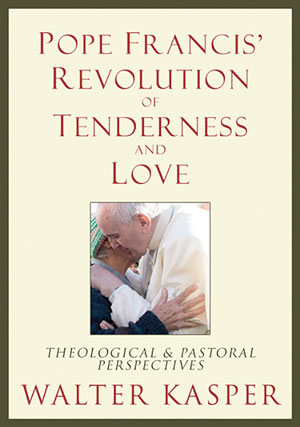First in a series
AT THE END OF every philosophy course that I teach at St. John’s University, Jamaica, I ask the students for an evaluation of the course, the books used and the teacher. I suggest that the students not sign the evaluation so that they will feel free to be completely honest. I stress that they should not be concerned about hurting my feelings. I want to know their reactions to the course, to the assigned books and to me. I take the evaluations so seriously that I have made significant changes in courses because of what the students have written in evaluations.
In recent years I have noticed a widespread reaction to my teaching. Many students mention that I appear enthusiastic, excited and passionate about the material. I don’t know whether I communicate any philosophical knowledge to the students, but at least I apparently communicate my enthusiasm.
Immediately when I come upon a book that I think is important, I wish to tell others about it. Anyone who reads this column with any regularity probably has noticed this.
 Right now, I am very enthusiastic about a new book I have just finished: Cardinal Walter Kasper’s “Pope Francis’ Revolution of Tenderness and Love” (Translated by William Madges, Paulist Press, New York, 2015, pp.117, $16.95).
Right now, I am very enthusiastic about a new book I have just finished: Cardinal Walter Kasper’s “Pope Francis’ Revolution of Tenderness and Love” (Translated by William Madges, Paulist Press, New York, 2015, pp.117, $16.95).
Cardinal Walter Kasper is an excellent theologian and he knows Pope Francis’ theological vision and also Pope Francis’ spirituality very well.
Whenever there is any item about Pope Francis in a newspaper, I make sure to read it. I have been amazed by what the Holy Father has accomplished already. However all those news stories are written by people who are looking at Pope Francis, so to speak, from the “outside.” From Cardinal Kasper I receive a view from the “inside,” from someone who knows the Holy Father well and who understands what the Holy Father’s vision and plan is for the Church.
Providential Moment
In his first chapter, which he entitles “Pope of Surprises,” Cardinal Kasper, claiming that the election of Francis seemed to come at a providential moment, writes the following:
“The cases of abuse had unleashed a shock wave and caused serious damage, above all in the United States, Ireland, Belgium, and Germany. Additionally, there arose the impression of mental fatigue and exhaustion, a lack of confidence and enthusiasm. The church was increasingly occupied primarily with itself; it suffered and moaned about its situation or occasionally celebrated itself. Its prophetic power appeared extinguished and its missionary vitality appeared to languish. A world that had become secular and that was no longer communist, but rather consumerist and determined by the economy, appeared to make the church marginal. Booming Pentecostal churches and esotericism throughout the world threatened to outstip it. A relentless downward spiral appeared to be in motion.” (p. 2)
How much can one man accomplish? Of course, I don’t know the answer to that question, but I would hesitate to think that Pope Francis cannot accomplish a great deal. By changing attitudes and renewing hope, I think that he has already accomplished a great deal. He has dramatically changed the atmosphere.
Besides what he can accomplish in his own lifetime, who can tell what legacy he will leave? How much will his initiatives reap beneficial results in the years to come?
I know that the Holy Father’s profound concern for the poor has provoked my conscience and made me decide that I must become much more knowledgeable about the Church’s social teaching. I want to know it sufficiently well that I can see how it should influence my own efforts at living the Christian life, my efforts teaching at St. John’s and my efforts to preach at eucharistic celebrations.
Social Teaching
Years ago, I tried to persuade a friend of mine who teaches theology at St. John’s to volunteer to teach the theology course on the Church’s social teaching. My friend is an excellent teacher and I believe that if he taught social justice, he would inspire as well as instruct the students. I cannot recall the reasons he gave for not following my suggestion at that time, but I may make that suggestion to him again.
First, I must challenge myself to see more clearly and deeply how the Church’s social teaching is not just an addendum to the faith or an interesting philosophical view about society. I must come to see that the social teaching of the Church is intimately related to Jesus’ death and resurrection and to our salvation and redemption. I am very confident that Pope Francis will help me to see that and more.
Father Robert Lauder, philosophy professor at St. John’s University, Jamaica, is the author of the recently published “Pope Francis’ Spirituality and Our Story” (Resurrection Press).
